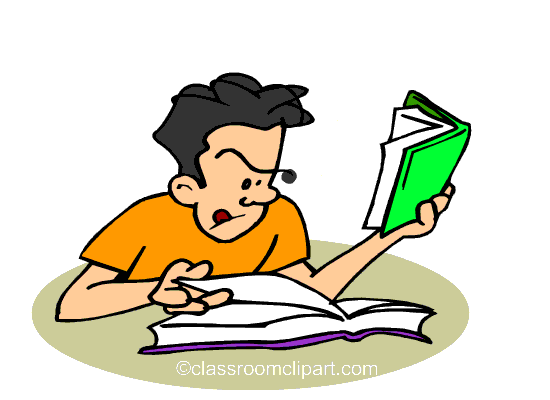A rough draft of the bill was prepared in year 2005. It caused
considerable controversy due to its mandatory provision to provide 25%
reservation for disadvantaged children in private schools. The
sub-committee of the Central Advisory Board of Education which prepared
the draft Bill held this provision as a significant prerequisite for
creating a democratic and egalitarian society. Indian Law commission had
initially proposed 50% reservation for disadvantaged students in
private schools.
On 7 May 2014, The Supreme Court of India ruled that Right to Education Act is not applicable to Minority institutions.
Passage
The bill was approved by the cabinet on 2 July 2009. Rajya Sabha passed the bill on 20 July 2009 and the Lok Sabha
on 4 August 2009. It received Presidential assent and was notified as
law on 26 August 2009 as The Children’s Right to Free and Compulsory
Education Act.
The law came into effect in the whole of India except the state of
Jammu and Kashmir from 1 April 2010, the first time in the history of
India a law was brought into force by a speech by the then Prime Minister Manmohan Singh.
In his speech, Dr. Singh stated, “We are committed to ensuring that all
children, irrespective of gender and social category, have access to
education. An education that enables them to acquire the skills,
knowledge, values and attitudes necessary to become responsible and
active citizens of India.”
The RTE Act provides for the right of children to free and compulsory
education till completion of elementary education in a neighbourhood
school. It clarifies that ‘compulsory education’ means obligation of the
appropriate government to provide free elementary education and ensure
compulsory admission, attendance and completion of elementary education
to every child in the six to fourteen age group. ‘Free’ means that no
child shall be liable to pay any kind of fee or charges or expenses
which may prevent him or her from pursuing and completing elementary
education.
It makes provisions for a non-admitted child to be admitted to an age appropriate class.
It specifies the duties and responsibilities of appropriate
Governments, local authority and parents in providing free and
compulsory education, and sharing of financial and other
responsibilities between the Central and State Governments.
It lays down the norms and standards relating inter alia to pupil
teacher ratios (PTRs), buildings and infrastructure, school-working
days, teacher-working hours.
It provides for rational deployment of teachers by ensuring that the
specified pupil teacher ratio is maintained for each school, rather than
just as an average for the State or District or Block, thus ensuring
that there is no urban-rural imbalance in teacher postings. It also
provides for prohibition of deployment of teachers for non-educational
work, other than decennial census, elections to local authority, state
legislatures and parliament, and disaster relief.
It provides for appointment of appropriately trained teachers, i.e.
teachers with the requisite entry and academic qualifications.
It prohibits (a) physical punishment and mental harassment; (b)
screening procedures for admission of children; (c) capitation fee; (d)
private tuition by teachers and (e) running of schools without
recognition.
It provides for development of curriculum in consonance with the
values enshrined in the Constitution, and which would ensure the
all-round development of the child, building on the child’s knowledge,
potentiality and talent and making the child free of fear, trauma and
anxiety through a system of child friendly and child centered learning.
Functioning
What is this Act about?
The Right of Children to Free and Compulsory Education Act, 2009 is
about a child’s right to education. It ensures that all children get
free education from class 1 to class 8. To achieve this, the Act lays
down some duties for governments, schools, teachers and parents.
The Act also contains rules on pupil-teacher ratio, teacher
vacancies, penalties for conducting screening tests and punishing
children.
Does this Act apply to all children?
This Act only applies to children between the ages of 6 to 14.
However, children who are more than 14 years old but have not been able
to attend school till class 8, can get free education till class 8 under
this Act.
How does this Act help children?
- All children between the ages of 6 to 14 can get free education from
class 1 to class 8, in a nearby government school or aided school.
- Children who have never been to school or have dropped out, can get
back to school. They will get admission in a class suitable to their
age.
- Children who are poor or underprivileged in some way, can get free education till class 8 in a private school.
- Children must be given admission in a school even if they don’t have documents like transfer certificate and age proof.
- Children cannot be forced to give tests for getting admission in a school.
- Children cannot be asked to leave school or be forced to repeat a class, till they complete class 8.
- It is illegal to beat up or harass a child.
Why is the word ‘compulsory’ used?
The word ‘compulsory’ means that it is compulsory for the government
to give free education to all children. It does not mean it is
compulsory for parents to send their children to school.
How can a child get free education in a private school?
- Children from ‘disadvantaged groups’ and ‘weaker sections’ can get
free education in a private school. These terms are explained below.
- Every private school has to keep 25% of its seats in class 1 for children from ‘disadvantaged groups’ and ‘weaker sections’.
- The school has to give free education to these children till class 8.
Please note that both the Central and State/UT Governments have
issued rules which may contain additional or modified requirements which
have to be followed by schools.
Highlights
The Act makes education a fundamental right
of every child between the ages of 6 and 14 and specifies minimum norms
in elementary schools. It requires all private schools(except the
minority institutions) to reserve 25% of seats for the poor and other
categories of children (to be reimbursed by the state as part of the
public-private partnership plan). Children are admitted in to private
schools based on caste-based reservations. See Page 9 and Point no 4 of This Document.
It also prohibits all unrecognised schools from practice, and makes
provisions for no donation or capitation fees and no interview of the
child or parent for admission.The Act also provides that no child shall be held back, expelled, or
required to pass a board examination until the completion of elementary
education. There is also a provision for special training of school
drop-outs to bring them up to par with students of the same age.
The RTE act requires survyus that will monitor all neighbourhoods,
identify children requiring education, and set up facilities for
providing it. The World Bank education specialist for India, Sam Carlson, has observed:
- The RTE Act is the first legislation in the world that puts the
responsibility of ensuring enrolment, attendance and completion on the
Government. It is the parents’ responsibility to send the children to
schools in the US and other countries.
The Right to Education of persons with disabilities until 18 years of
age is laid down under a separate legislation- the Persons with
Disabilities Act. A number of other provisions regarding improvement of
school infrastructure, teacher-student ratio and faculty are made in the
Act.
Implementation and funding
Education in the Indian constitution
is a concurrent issue and both centre and states can legislate on the
issue. The Act lays down specific responsibilities for the centre, state
and local bodies for its implementation. The states have been
clamouring that they lack financial capacity to deliver education of
appropriate standard in all the schools needed for universal education.
Thus it was clear that the central government (which collects most of
the revenue) will be required to subsidise the states.
A committee set up to study the funds requirement and funding initially estimated that Rs
1710 billion or 1.71 trillion (US$38.2 billion) across five years was
required to implement the Act, and in April 2010 the central government
agreed to sharing the funding for implementing the law in the ratio of
65 to 35 between the centre and the states, and a ratio of 90 to 10 for
the north-eastern
states. However, in mid 2010, this figure was upgraded to Rs.
2310 billion, and the center agreed to raise its share to 68%.
There is some confusion on this, with other media reports stating that
the centre’s share of the implementation expenses would now be 70%. At
that rate, most states may not need to increase their education budgets
substantially.
A critical development in 2011 has been the decision taken in
principle to extend the right to education till Class X (age 16) and
into the preschool age range.The CABE committee is in the process of
looking into the implications of making these changes.
Advisory Council on Implementation
The
Ministry of HRD set up a high-level, 14-member National Advisory
Council (NAC) for implementation of the Act. The members include
- Kiran Karnik, former president of NASSCOM
- Krishna Kumar, former director of the NCERT
- Mrinal Miri, former vice-chancellor of North-East Hill University
- Yogendra Yadav – social scientist. India
- Sajit Krishnan kutty Secretary of The Educators Assisting Children’s Hopes (TEACH)India.
- Annie Namala, an activist and head of Centre for Social Equity and Inclusion
- Aboobacker Ahmad, vice-president of Muslim Education Society, Kerala.
- Status of implementation
A
report on the status of implementation of the Act was released by the
Ministry of Human Resource Development on the one-year anniversary of
the Act. The report admits that 8.1 million children in the age group
6-14 remain out of school and there’s a shortage of 508,000 teachers
country-wide. A shadow report by the RTE Forum, representing the leading
education networks in the country led by Ambarish Rai (a prominent
activist), however, challenging the findings pointing out that several
key legal commitments are falling behind the schedule.(http://www.rteforumindia.org/). The
Supreme Court of India has also intervened to demand implementation of
the Act in the Northeast. It has also provided the legal basis for
ensuring pay parity between teachers in government and government aided
schools.
Haryana Government has assigned the duties and responsibilities to
Block Elementary Education Officers–cum–Block Resource Coordinators
(BEEOs-cum-BRCs) for effective implementation and continuous monitoring
of implementation of Right to Education Act in the State.
Precedents
It
has been pointed out that the RTE act is not new. Universal adult
franchise in the act was opposed since most of the population was
illiterate. Article 45 in the Constitution of India was set up as an act:
- The State shall endeavour to provide, within a period of ten years
from the commencement of this Constitution, for free and compulsory
education for all children until they complete the age of fourteen
years.
As that deadline was about to be passed many decades ago, the education minister at the time, M C Chagla, memorably said:
- Our Constitution fathers did not intend that we just set up hovels,
put students there, give untrained teachers, give them bad textbooks, no
playgrounds, and say, we have complied with Article 45 and primary
education is expanding… They meant that real education should be given
to our children between the ages of 6 and 14 – M.C. Chagla, 1964.
In the 1990s, the World Bank funded a number of measures to set up
schools within easy reach of rural communities. This effort was
consolidated in the Sarva Shiksha Abhiyan model in the 1990s. RTE takes the process further, and makes the enrolment of children in schools a state prerogative.
Criticism
The act has been criticised for being hastily drafted, not consulting many groups active in education, not considering the
quality of education, infringing on the rights of private and religious
minority schools to administer their system, and for excluding children
under six years of age.Many of the ideas are seen as continuing the policies of Sarva Shiksha Abhiyan of the last decade, and the World Bank funded District Primary Education Programme DPEP
of the ’90s, both of which, while having set up a number of schools in
rural areas, have been criticised for being ineffective and
corruption-ridden.
The quality of education provided by the government school system is
not good. While it remains the largest provider of elementary education
in the
country, forming 80% of all recognised schools, it suffers from shortage
of teachers and infrastructural gaps. Several habitations lack schools
altogether. There are also frequent allegations of government schools
being riddled with absenteeism and mismanagement and of appointments
made on political convenience. Despite the allure of free lunch in the
government schools, many parents send their children to private schools.
Average schoolteacher salaries in private rural schools in some States
(about Rs. 4,000 per month) are considerably lower than those in
government schools. As a result, the proponents of low-cost private
schools critique the government schools as being poor value for money.
Children attending the private schools are seen to be at an
advantage, forming a discrimination against the weakest sections who are
forced to go to government schools. Furthermore, the system has been
criticised as catering to the rural elites who are able to afford school
fees in a country where a large number of families live in absolute
poverty. The act has been criticised as discriminatory for not
addressing these issues. Well-known educationist Anil Sadagopal said of
the hurriedly drafted act:
- It is a fraud on our children. It gives neither free education nor
compulsory education. In fact, it only legitimises the present
multi-layered, inferior quality school education system where
discrimination shall continue to prevail.
Entrepreneur Gurcharan Das
noted that 54% of urban children attend private schools, and this rate
is growing at 3% per year. “Even the poor children are abandoning the
government schools. They are leaving because the teachers are not
showing up.” However, other researchers have countered the argument by saying that
the evidence for higher standard of quality in private schools often
disappears when other factors (like family income and parental literacy)
are accounted for.
Public-private partnership
To
address these quality issues, the Act has provisions for compensating
private schools for admission of children under the 25% quota which has
been compared to school vouchers,
whereby parents may “send” their children in any school, private or
public. This measure, along with the increase in PPP (Public Private
Partnership) has been viewed by some organisations such as the All-India
Forum for Right to Education (AIF-RTE), as the state abdicating its
“constitutional obligation towards providing elementary education”.
Infringement on private schools
The Society for Un-aided Private Schools, Rajasthan (in Writ Petition (Civil) No. 95 of 2010) and as many as 31 others petitioned the Supreme Court of India
claiming that the act violates the constitutional right of private
managements to run their institutions without governmental interference.
The parties claimed that providing 25 percent reservation for
disadvantaged children in government and private unaided schools is
“unconstitutional.”
Forcing unaided schools to admit 25% disadvantaged students has also
been criticized on the grounds that the government has partly
transferred its constitutional obligation to provide free and compulsory
elementary education to children on “non-state actors,” like private
schools, while collecting a 2% cess on the total tax payable for primary
education.
On 12 April 2012, a three judge bench of the Supreme Court delivered its judgement by a majority of 2-1. Chief Justice SH Kapadia and Justice Swatanter Kumar
held that providing such reservation is not unconstitutional, but
stated that the Act will not be applicable to private minority schools
and boarding schools. However, Justice K. S. Panicker Radhakrishnan
dissented with the majority view and held that the Act cannot apply to
both minority and non-minority private schools that do not receive aid
from the government.
In September 2012, the Supreme Court subsequently declined a review petition on the Act.
In May 2016, the Chetpet-based CBSE school Maharishi Vidya Mandir
became embroiled in a scandal over its circumvention of the 25% quota
rule.
During its admissions cycle, the school told economically weaker
parents “the RTE does not exist,” and, “we do not take these [government
RTE] applications.” The senior principal also informed the Tamil Nadu
Regional Director of the CBSE that he intended to “reject applicants
without an email address,” thereby excluding technically illiterate
parents from seeking admissions. In addition, school officials falsified
the distance figures of several poorer candidates in attempts to
disqualify them from availing of the scheme.
Barrier for orphans
The
Act provides for admission of children without any certification.
However, several states have continued pre-existing procedures insisting
that children produce income and caste certificates, BPL cards and
birth certificates. Orphan children are often unable to produce such
documents, even though they are willing to do so. As a result, schools
are not admitting them, as they require the documents as a condition to
admission.















































